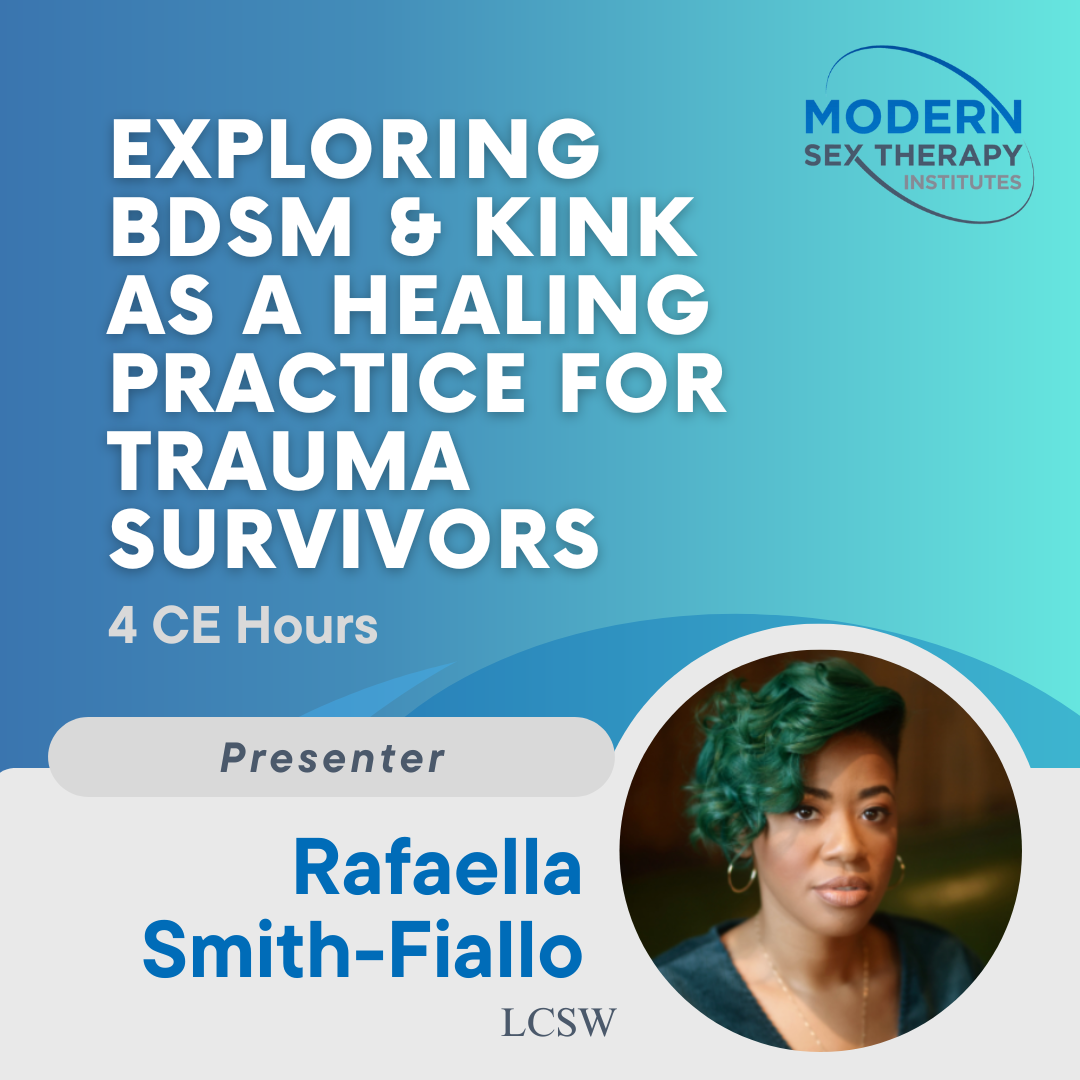Exploring BDSM & Kink as a Healing Practice for Trauma Survivors
$160.00
Human Sexuality Education
Section J
Course description
BDSM and kink are forms of sexual expression that serves a variety of purposes to the practitioner, from being an outlet for creativity to being a container for healing and much more. However, society holds many misconceptions about BDSM and kink, which may become present during therapy and create space for transference and countertransference between clients and therapists. Working with traumatized clients who practice or are interested in BDSM and kink may add on an additional layer of concern and discomfort for therapists.
This workshop explores how traditional therapy has historically subjugated sexual minorities who practice BDSM and kink, offers clinicians a space to challenge their own biases, provides affirming research in the area of practicing BDSM and kink for trauma survivors, and guides clinicians through case examples and tools for supporting clients who want to use BDSM and kink as a tool in their trauma healing process.
Learning objectives
- Describe the effect that trauma has on the brain, body, and sex.
- List three common misconceptions about BDSM/kink.
- Define different types of BDSM practice and kink interests.
- Discuss the differences between healthy and abusive practices in BDSM/kink..
- Discuss two countertransference issues that can arise and how to manage them.
Schedule
2:00-2:10: Introduction to MSTI, presenter, and course purpose
2:10-2:30: Discuss myths and messages surrounding BDSM/Kink.
2:30-3:00: Review different types of BDSM practice, kink interests, and related terms
3:00-4:00: Explore treatment barriers
4:00-5:00: Introduce interventions and practice (activity)
5:00-5:45: Review case examples
5:45-6:00: Closing comments and Q & A
About the speaker
Rafaella Smith-Fiallo, LCSW (she/ella) is a Licensed Clinical Social Worker, sexual liberation activist, and therapist specializing in relationship, sex, and trauma therapy. She owns Healing Exchange LLC, a therapy private practice, and co-founded Afrosexology, a sex-positive, pleasure-based sexuality education business. Her work with Afrosexology has been featured in numerous media outlets like HuffPost, Teen Vogue, Vibe Magazine, Broadly, and others. Additionally, she has worked in the field of suicide prevention and crisis intervention in civilian and veteran populations, and in inpatient, outpatient, and community mental health settings.
Class originally recorded: 4/18/2022.
Social workers completing this course receive 4 general continuing education credits.

